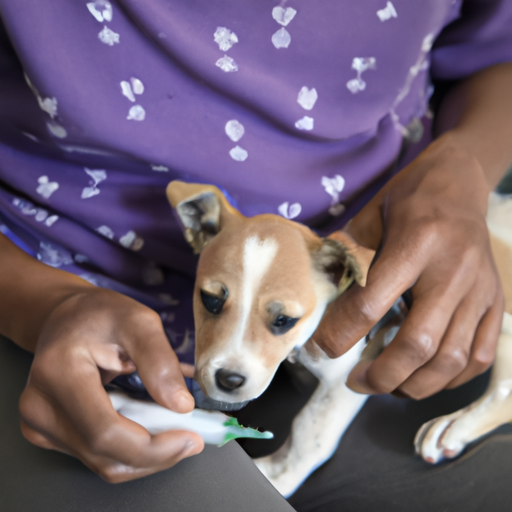As a dog owner, your pet’s health is your top priority. One of the most crucial steps in ensuring your pup’s well-being is to keep their vaccinations up-to-date. Rabies is a serious, fatal disease that can be prevented with timely immunizations. This article is your guide to understanding when you can get your dog its first rabies shot, the importance of rabies vaccinations, and how to maintain a regular vaccination schedule.
Table of Contents
- Understanding Rabies in Dogs
- When to Give Your Dog Their First Rabies Shot
- Importance of Rabies Vaccination
- Maintaining a Regular Vaccination Schedule
- Frequently Asked Questions
Key Takeaways
- Puppies can get their first rabies shot as early as three months old.
- Regular rabies vaccinations are crucial to prevent the fatal disease.
- It’s important to maintain an updated vaccination schedule for your dog.
Understanding Rabies in Dogs
Rabies is a viral disease that affects the nervous system of mammals, including dogs. It’s transmitted primarily through the bite of an infected animal. The virus travels through the nerves to the brain, causing inflammation and ultimately leading to death. Rabies is fatal once symptoms appear, which is why prevention is so essential.
According to the American Veterinary Medical Association, rabies is a zoonotic disease, meaning it can be transmitted from animals to humans. This makes it doubly important to ensure your dog is vaccinated and protected.
When to Give Your Dog Their First Rabies Shot
Your puppy can get their first rabies vaccination when they are three months old. This is in line with the recommendations from the American Animal Hospital Association (AAHA). Remember, earlier protection helps to keep your pet safe from this fatal disease.
It’s also important to note that some states in the U.S have legal requirements regarding the age at which a dog should receive its first rabies shot. Be sure to check your local laws or consult with your vet to ensure your dog is vaccinated at the right age.
Importance of Rabies Vaccination
Rabies vaccinations are a crucial part of your dog’s healthcare regimen. Not only do they protect your pet from a deadly disease, but they also safeguard your family and community. An unvaccinated dog can contract rabies from wildlife and pose a risk to humans and other animals.
Moreover, maintaining up-to-date rabies vaccinations for your dog is a legal requirement in most parts of the U.S. Failure to comply can result in fines or penalties.
Maintaining a Regular Vaccination Schedule
After their first vaccination, puppies need a booster shot one year later. Following this, your dog will typically need a rabies vaccination every one to three years, depending on the type of vaccine and local laws.
Maintaining this schedule is crucial for continued protection against the disease. It’s a good idea to keep a vaccination record for your dog and set reminders for their next shots. Many vet clinics also send out reminders to help you stay on track.
For detailed information about maintaining a vaccination schedule, you can visit this page.
Frequently Asked Questions
-
Are there side effects to the rabies vaccine?
Yes, like all vaccines, the rabies vaccine can have side effects. These can range from mild reactions like soreness at the injection site to more serious reactions like allergic reactions. However, serious side effects are rare. Consult your vet if you notice any unusual behavior or symptoms post-vaccination. -
What if my dog misses a rabies shot?
If your dog misses a scheduled rabies shot, it’s best to get them vaccinated as soon as possible. Missing a vaccination can leave your dog vulnerable to the disease. -
Can an older dog get a rabies shot?
Yes, older dogs can and should get rabies vaccinations. Age doesn’t make a dog immune to rabies. In fact, older dogs might be more susceptible due to a weaker immune system.
In conclusion, taking care of your dog’s health includes ensuring they’re protected against deadly diseases like rabies. So, remember to get your puppy their first rabies shot at three months and maintain a regular vaccination schedule. This simple act can save lives – both canine and human. For more information about dog health, you can check out this article and this blog post.



